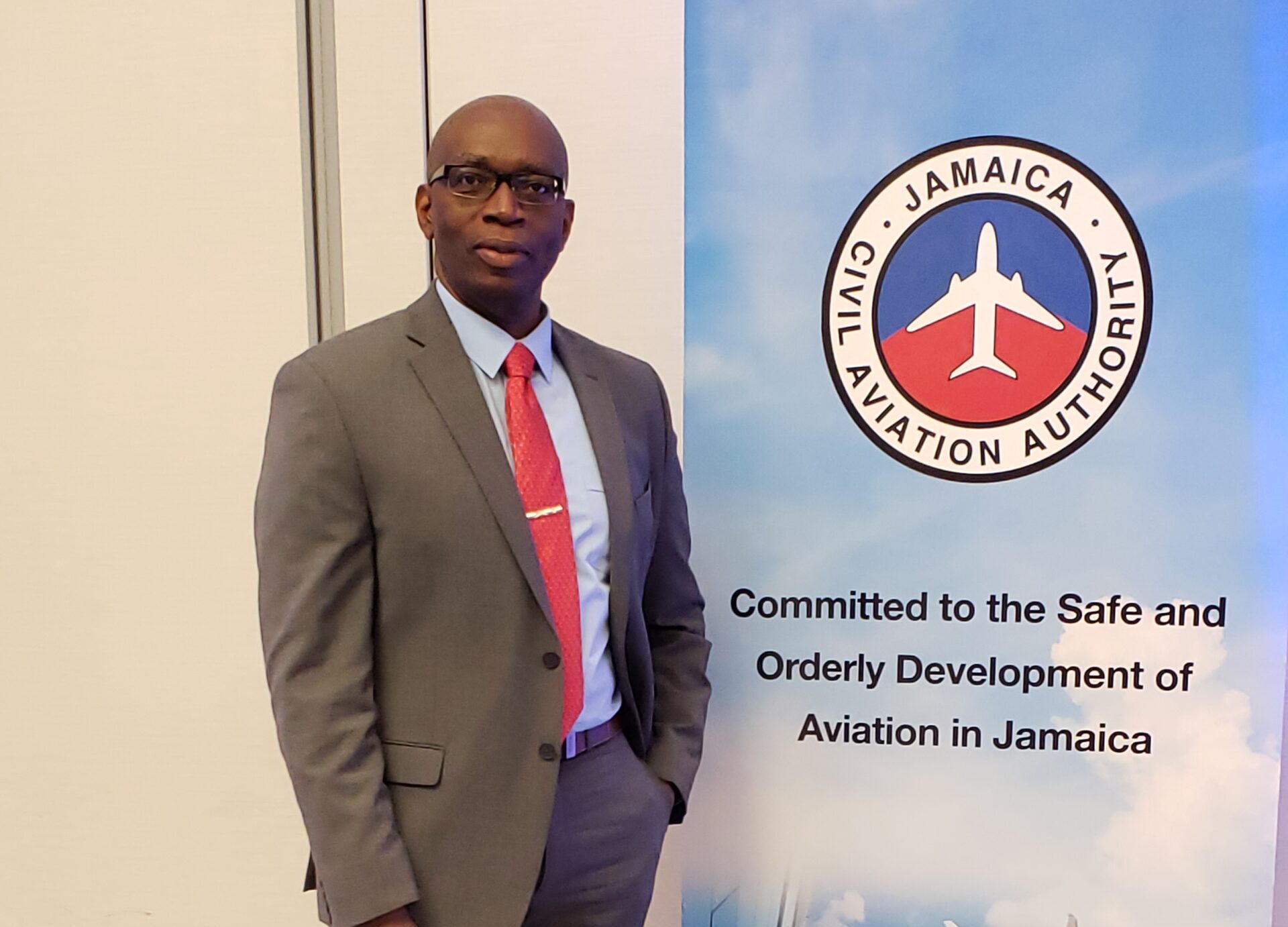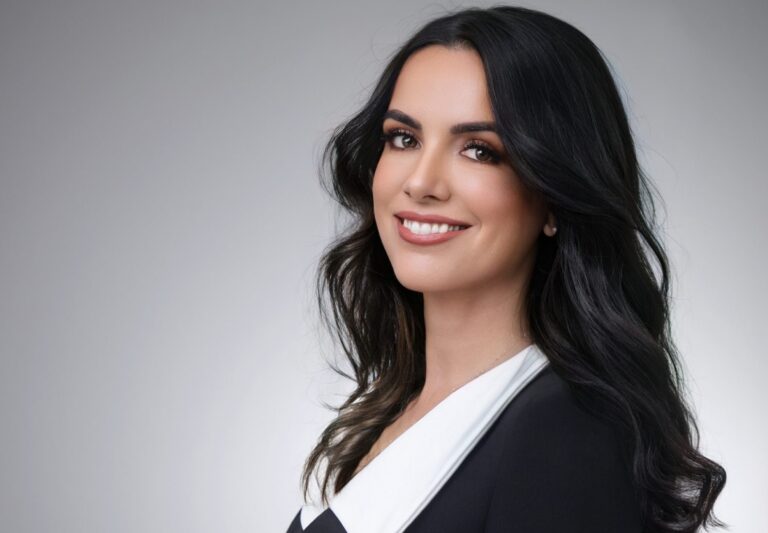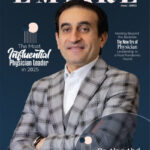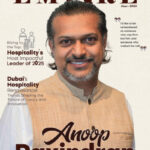Dr. Carvell Newton McLeary: The Pioneer of People-Centered Progress

True innovation happens when someone can see connections others miss—when technical know-how meets a deep understanding of people. That’s exactly the space where Dr. Carvell Newton McLeary shines. With a career that started in engineering and evolved into human resource leadership, he’s brought a fresh perspective to solving complex organizational challenges.
Now the Director of Human Resources at the Jamaica Civil Aviation Authority, Dr. McLeary has spent years combining research, real-world expertise, and a people-first approach to reshape workplace culture. His groundbreaking work, like the Organizational Trust framework, shows what’s possible when leadership is fueled by both heart and strategy.
A Lifelong Quest for Knowledge
Dr. McLeary’s journey is one marked by an insatiable thirst for knowledge and an innate curiosity. This drive for learning was deeply inspired by his mother, Elsie Agatha McLeary, a dedicated housewife who cultivated a rich library at home. Her influence fostered Dr. McLeary’s intellectual curiosity, shaping his fascination with understanding the world around him.
Starting his professional career as a telecommunications maintenance technician, Dr. McLeary didn’t stop at technical work. While in the field, he pursued a bachelor’s degree in electronic engineering on a part-time basis. This combination of hands-on experience and academic study allowed him to develop innovative solutions, including a computerised system that facilitated communication between telex machines and computers—an achievement that showcased his natural problem-solving ability and technical ingenuity.
After graduating, Dr. McLeary’s passion for research in electronic engineering remained undiminished. However, limited opportunities in his field within Jamaica led to a moment of professional and personal reflection. During a vacation abroad, he discovered sociology, an encounter that profoundly shifted his perspective. He realized that social sciences offered a rich arena for research and development, with opportunities to explore and address human behavior in everyday contexts.
When a chance arose to lead technical training, Dr. McLeary embraced the role, finding a natural alignment between his problem-solving mindset and the human dynamics involved in training and development. This was his introduction to human resource management (HRM), which, along with organizational behavior (OB), would become a cornerstone of his career.
Dr. McLeary’s engineering background became a unique asset in HRM and OB. He applied the analytical rigor and systematic approach of engineering to study and address human behavior and organizational challenges. By combining these fields, he has consistently delivered research-driven insights that benefit both organizations and the individuals within them, fostering growth, understanding, and impactful change.
Cultivating a Legacy of Inspiration and Guidance
Dr. Carvell Newton McLeary reflects on the individuals and values that profoundly shaped his career. His journey was marked by the guidance of key mentors who played pivotal roles in honing his skills and perspective.
One such individual, Mr. Roy Sweetland, provided essential support in Dr. McLeary’s theoretical and practical development during his early days in technical training. Meanwhile, Mr. Tyrone Foreman offered critical on-the-job mentorship that eased his transition into Human Resource Management. These lessons built a solid foundation for Dr. McLeary’s expertise in the field.
Dr. McLeary also recalls the influence of two academics at the University of the West Indies: Mr. Clement Branche, who unveiled the depth of qualitative research, and Professor Ian Boxill, who encouraged him to engage globally, presenting his research for validation and peer evaluation. Their encouragement to explore and expand his academic boundaries proved instrumental in his scholarly achievements.
However, the most enduring influence in his life came from his late mother. Through her selfless actions, she instilled in him the values of love, care, and compassion for all people, regardless of their differences. Her ability to connect with neighbors, share resources, and mediate conflicts with her simple yet profound advice, “For a peaceful life, let us…” left an indelible mark on Dr. McLeary’s philosophy and approach to leadership.
Keys to Thriving in Relationships and Work
Dr. Carvell Newton McLeary shares the foundational lessons that have shaped his career and continue to guide his professional ethos.
The first principle Dr. McLeary emphasizes is the vital role of communication. He likens it to the oil that keeps the engine of relationships and organizations running smoothly. For him, effective communication goes beyond just speaking clearly; it requires understanding the thoughts and concerns of others. He views this process as a two-way street—expressing ideas with clarity and honesty while tuning into the challenges others may be experiencing. This approach fosters meaningful support and builds trust.
Secondly, Dr. McLeary underscores the importance of relationship building, framing it as a non-negotiable aspect of success. He views organizational achievements as a collective effort, emphasizing that neither personal nor professional goals can be attained in isolation. By fostering strong, collaborative relationships with colleagues, management, unions, and stakeholders, Dr. McLeary believes in creating an environment where everyone thrives. This, in turn, powers the success of the entire organization.
Another key insight Dr. McLeary shares is the importance of self-evaluation. He describes it as the cornerstone of growth, requiring honest reflection on one’s actions and a willingness to recalibrate behaviors and attitudes. For him, this process is vital for managing the ego’s natural resistance to constructive feedback. By embracing this, individuals can stay aligned with their goals and continuously improve.
Finally, Dr. McLeary highlights the significance of systems thinking. He explains that every challenge—whether personal or professional—exists within a larger context. Adjustments in one area can create ripple effects in another, making it essential to approach problem-solving with an appreciation for interconnectedness. This systemic mindset, he notes, is a daily practice he strives to uphold in his work.
Through these principles, Dr. McLeary exemplifies a thoughtful and methodical approach to leadership, grounded in communication, collaboration, self-awareness, and systems thinking.
Breaking Myopic Models in HR
Dr.McLeary has observed a recurring challenge across industries in Jamaica. Too often, individuals find themselves thrust into management and leadership roles without the preparation they need to succeed. These roles demand a specific mindset and skill set, yet many leaders lack both the attitude and competencies necessary for guiding their teams effectively.
A critical gap lies in understanding the concept of a “duty of care” toward team members. This principle is essential for managers who must realize their role as human resource managers, regardless of their formal titles. At its core, leadership involves developing and supporting people—a responsibility that requires dedication and empathy.
Dr. McLeary also highlights the disconnect many organizations face when it comes to human resource management. Despite HR’s central importance, businesses often fail to appreciate the significance of talent management or offer HR professionals the exposure they need to thrive. Frequently, HR practitioners are confined to a narrow scope, sidelined from the technical, financial, or strategic elements of the business. This myopic approach stifles growth for both the individuals and the organizations they serve.
On the other hand, visionary leadership recognizes that achieving organizational excellence hinges on empowering employees—especially HR leaders—through holistic training and development. By investing in people and fostering their growth across all dimensions, businesses unlock their full potential.
Driven by this understanding, Dr. McLeary has committed himself to continuous personal and professional development while championing the growth of others in his sphere of influence. His work exemplifies a proactive approach to bridging gaps in leadership preparedness and creating stronger, more capable teams.
Championing Values-Driven Approaches to HR Strategy
Dr. McLeary emphasizes that achieving success in HR and sustaining organizational excellence go far beyond metrics or financial performance. According to him, at the heart of this success lies the need to intentionally craft the right organizational culture. While tools like the McKinsey 7S framework are invaluable for navigating change, one critical element of the framework often gets overlooked—Values.
“Values are the DNA of an organization,” Dr. McLeary asserts. When a company’s values are accidental or misaligned, it can derail the intended culture, negatively affecting both business performance and employee well-being.
Dr. McLeary believes that HR plays a pivotal role in connecting organizational culture with essential outcomes, such as profitability, employee wellness, and retention. He highlights that fostering a positive culture is key to enhancing employee engagement and improving the industrial relations climate, both of which significantly impact business results. However, reshaping culture is not a task HR can achieve alone—it requires a strategic blend of cultural engineering and steadfast leadership commitment.
Leading Change, Building Trust, Driving Excellence
Recognized for his exceptional contributions, Dr. McLeary has received several prestigious honors, including the Alcan Award for Excellence in HR, the Human Resource Development Prize for Exemplary Leadership in both 2011 and 2012 from UWI, and the Jamaica Public Service Company Scholarship for his MSc in HRD.
Among his academic milestones, he considers earning a PhD in Organizational Behaviour as his crowning achievement. This rigorous pursuit not only honed his expertise but also enabled him to develop a groundbreaking Model of Organizational Trust, a framework that evaluates the trust employees in Jamaica—and similar societies—place in their organizations. The model has gained significant recognition in academic and professional research circles.
In the industry, Dr. McLeary’s impact resonates through several landmark initiatives. He has designed and implemented Cultural Engineering and Management Workshops to help organizational leaders and influencers identify and align with their shared values, such as Core, Permission to Play, Accidental, and Aspirational Values. His expertise also extends to change management, where he authored and executed the Employee Transition Plan during the privatization of Norman Manley International Airport under the Public-Private Partnership in 2019.
Dr. McLeary has further demonstrated his leadership by spearheading the JPS Competency-Based Training Project for Electrical Linesmen, which introduced a skills-based pay curriculum, thereby elevating workforce competencies. His vision led to the establishment of the Learning and Development Centre at Norman Manley International Airport, transforming it into a hub for training and revenue generation. Moreover, he played a pivotal role in restructuring both the Airports Authority of Jamaica and Norman Manley International Airport, effectively addressing financial challenges brought on by local and global economic pressures.
Purpose-Driven Strategies for Lasting Impact
Dr. Carvell Newton McLeary emphasizes that organizations are not inherently natural constructs for human occupation. As a result, leaders must take intentional steps to cultivate work environments where employees feel comfortable, remain highly productive, and thrive in terms of overall wellness. He advocates for achieving this through the deliberate practice of organizational behavior.
Dr. McLeary further posits that work organizations have the potential to transform and improve societies by embracing a higher, noble purpose. While transformational leaders have significantly influenced societies in positive ways, he suggests that even greater impact can be achieved through the actions and ethos of organizations themselves.
To realize this vision, organizational and HR leaders are encouraged to align their business strategies and corporate responsibility initiatives to foster both organizational success and broader societal sustainability.
Breaking Boundaries for Lasting Impact
Dr. Carvell Newton McLeary advocates for a broader approach to professional growth and societal contribution. He emphasizes the importance of advancing humanity, strengthening organizational success, and fostering societal development by prioritizing holistic personal growth. According to Dr. McLeary, achieving meaningful impact demands embracing cross-functional development and stepping beyond traditional job descriptions.
He underscores that while unionized settings often encourage individuals to stay confined to specific roles, true potential is realized only when professionals transcend these limitations. Dr. McLeary believes that leaving behind outdated notions of rigid job boundaries is essential for developing multi-skilled and multi-talented individuals who can drive progress across various domains.
Building Bridges for Aviation Harmony
Dr. Carvell Newton McLeary’s immediate focus is on fostering a stronger union-management relationship within Jamaica’s aviation sector. By aligning the goals of all parties and promoting collaboration, the industry has the potential to drive significant economic growth for the country. Achieving this vision requires both international research support and localized sponsorship to create a foundation for progress.
Beyond this, Dr. McLeary envisions extending his efforts by providing consultancy services aimed at reshaping organizational cultures. These services would focus on enhancing business development strategies while addressing the broader societal impacts of these organizations.
Fostering Evidence-Driven HR Success
Dr. McLeary’s legacy reflects his dedication to intertwining research with HR practices and ensuring that practical application informs academic inquiry in return. He believes strongly in the value of HR leaders grounding their interventions in established models, theories, and data from rigorous research. This approach fosters a structured and deliberate pathway to achieving successful outcomes.
By relying on practical results to refine existing theories and models, HR professionals can strengthen their methodologies and effectiveness. Dr. McLeary expresses his deepest wish to see HR leaders in his country adopt this evidence-based, cyclical approach as a standard operating method, elevating the field’s impact and reliability.
Designation: Director, Human Resources
Organization: Jamaica Civil Aviation Authority





